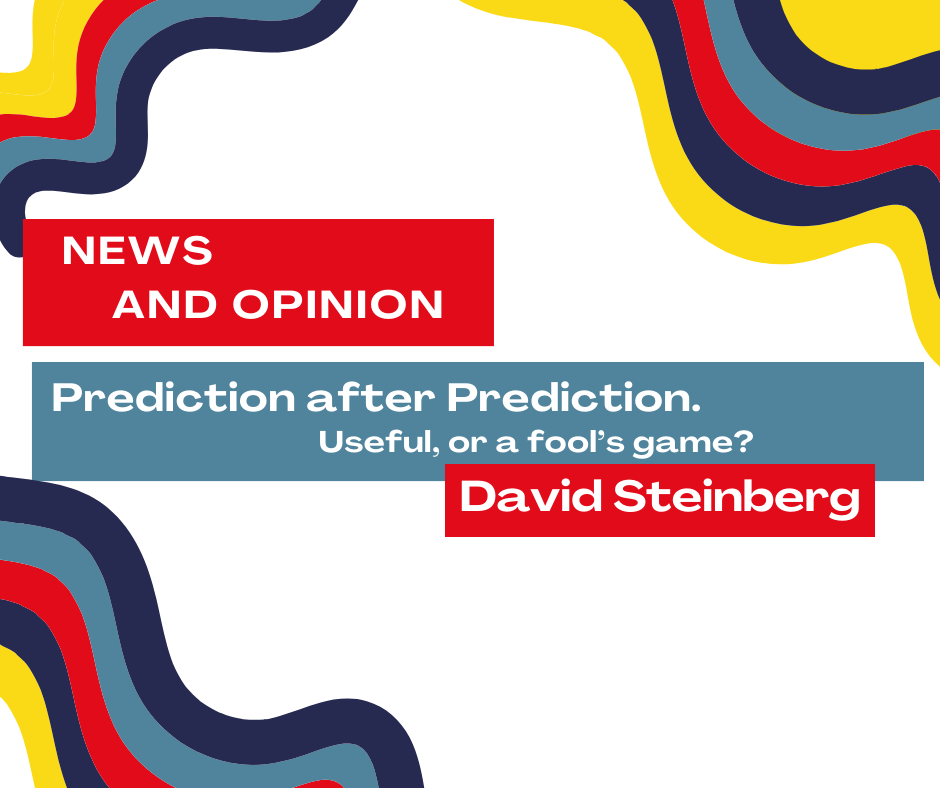Rate Predictions. Useful, or a fool’s game?
This is a 3 part series on economic predictions, how to differentiate between news and predictions, and finally, how we should use the information.
Part One: Prediction after prediction. Useful, or a fool’s game?
I’ll say it. Let’s quit with this silly nonsense of economic predictions. Or rather, I should ask, why do you care? How do you actually apply this information?
As we roll over into a new year, we see a plethora of professionals in the banking, finance, and real estate industries predicting where rates are going in the next year, and beyond. Its the same old regurgitation of guessed numbers on how much the rate is going to drop and when, without much firm backing. Where’s the context, people? Can we get some real analysis?
There are two main questions that my readers should think about when reading predictions.
The first is, why should we trust anything these economists (or even random people) tell us?
What’s the paid economist’s word over mine? Should we trust them because they have fancier degrees with more letters behind their name? Should we trust them because they have insider information? (Hint – no, because they don’t have insider information). Should we trust them because they’re paid big bucks by the banks to pontificate (really, that’s about all they’re doing). If anyone can tell me where these guys are adding value, I’ll buy you a coffee.
The fact remains that paid economists are wrong much of the time. So if they’re only right 50% of the time, should you really be depending on their word?
Secondly, and almost more importantly, why do you care?
Sounds kind of harsh, doesn’t it? Sure. But really, what are any of us going to benefit or do differently by reading into these diminutive predictions? Is it going to change your decision making? Are you going to do something different because you read on a Facebook post that rates are going to come down by EXACTLY 1.5% in 2024 and then EXACTLY another 1.5% in 2025? These predictions are fully loaded with very specific guesses for every one of BoC’s meetings, and in my opinion, this is the major fault of the rate prediction process.
Honestly, it feels like we see these predictions because it’s one more bit of content to send out to anyone who’s listening.
Paying attention to minute details of economic predictions just feels like a fools game. It’s more productive to look at things from a macro perspective.
Rates will drop when they drop. It’s not going to benefit any of us to guess exact details as to when and by how much. Instead, a more meaningful (and useful) prediction would be: Rate drops will start in the spring or the summer, and only depending on what happens with inflation and our economy. Rates will likely continue their downward trend through 2025, and again, stressing that it will only happen based on real economic news (not predictions!)
For example, let’s say you look at a prediction, and subsequently calculate what your new mortgage payment is going to be based on that. Then you make advance plans for your new windfall of cash (vacations, renos) all based on guesses you see. Does this seem like a smart move to you? No. Like my mom says: Don’t count your chickens before they hatch.
Instead, wait for the rates to actually drop, and then budget accordingly. Don’t make any plans for extra spending until you are certain.
With one caveat. When you’re making a SMART real estate purchase. That’ll be part 2 of this series.
And finally, my plug. If you want real and insightful analysis on your own financial situation, reach out. I’m straight to the point and will give you the goods. Just like thousands before you, since 2004.
Signing off for now,
David Steinberg, AMP, BComm
Owner/Lead Broker
Olympic Mortgage
PS. Your feedback is always welcome. Email me back at david@olympicmortgages.ca, or even pick up the phone and call me. 2508587160.

